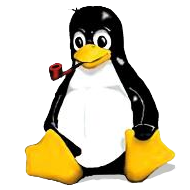Difference between revisions of "Slackware"
| (4 intermediate revisions by the same user not shown) | |||
| Line 1: | Line 1: | ||
{{Plugin | {{Plugin | ||
| − | | logo = | + | | logo = https://upload.wikimedia.org/wikipedia/commons/thumb/3/34/Slackware_web_logo.svg/200px-Slackware_web_logo.svg.png |
| website = http://www.slackware.com/ | | website = http://www.slackware.com/ | ||
| wikipedia = http://en.wikipedia.org/wiki/Slackware | | wikipedia = http://en.wikipedia.org/wiki/Slackware | ||
| Line 11: | Line 11: | ||
| internet = {{no}} | | internet = {{no}} | ||
| linux = {{yes}} | | linux = {{yes}} | ||
| − | | windows = {{ | + | | windows = {{yes}} |
| antivirus = {{no}} | | antivirus = {{no}} | ||
| deployment = {{no}} | | deployment = {{no}} | ||
| Line 19: | Line 19: | ||
| recovery = {{no}} | | recovery = {{no}} | ||
| requireIP = true | | requireIP = true | ||
| − | | image1 = | + | | image1 = https://upload.wikimedia.org/wikipedia/commons/thumb/b/bf/Slackware.png/300px-Slackware.png |
| − | | image1url = | + | | image1url = https://en.wikipedia.org/wiki/File:Slackware.png |
| − | | image2 = | + | | image2 = https://upload.wikimedia.org/wikipedia/commons/thumb/d/d0/Slackware_family_tree_11-06.png/220px-Slackware_family_tree_11-06.png |
| − | | image2url = | + | | image2url = https://en.wikipedia.org/wiki/File:Slackware_family_tree_11-06.png |
| − | | image3 = | + | | image3 = https://upload.wikimedia.org/wikipedia/commons/5/57/Slackware-mascot.png |
| − | | image3url = | + | | image3url = https://en.wikipedia.org/wiki/File:Slackware-mascot.png |
}} | }} | ||
| Line 33: | Line 33: | ||
Slackware was created by Patrick Volkerding of Slackware Linux, Inc. in 1993. The current stable version is 13.37, released on April 27, 2011. | Slackware was created by Patrick Volkerding of Slackware Linux, Inc. in 1993. The current stable version is 13.37, released on April 27, 2011. | ||
| − | Slackware aims for design stability and simplicity, and to be the most "Unix-like" Linux distribution | + | Slackware aims for design stability and simplicity, and to be the most "Unix-like" Linux distribution. |
{{TFTPPlugin | {{TFTPPlugin | ||
| Line 58: | Line 58: | ||
{{PluginInstructionsEnd}} | {{PluginInstructionsEnd}} | ||
[[Category:Plugins]] | [[Category:Plugins]] | ||
| + | [[Category:Operation System Installation]] | ||
| + | [[Category:Supported from ERPXE 1.0]] | ||
Latest revision as of 06:46, 5 May 2019
Important information
This plugin requires a static IP address (Default is 10.0.0.1). Every change to the server IP MUST be reflected into the plugin's menu file. How to adjust ERPXE to local IP address
return to Plugins list
Slackware 13.37 http://www.slackware.com/ |
|---|
Contents
Information
ERPXE Module
- Name: - Slackware
- Version: 13.37
- Official website: http://www.slackware.com/
- License: GNU General Public License
- Wikpedia Page: http://en.wikipedia.org/wiki/Slackware
- Download: http://www.erpxe.com/downloads
Plugin type
| Slackware | Anti-Virus | Deployment | Diagnostics | OS Installation | Live Media | Recovery Tools |
|---|---|---|---|---|---|---|
| No | No | No | Yes | No | No |
Plugin Requirments
| Slackware | CIFS | HTTP | Internet | NFS | Linux OS | Windows OS |
|---|---|---|---|---|---|---|
| No | No | No | Yes | Yes | Yes |
Screen Shots
Special Information
Slackware is a free and open source Linux-based operating system.
It was one of the earliest operating systems to be built on top of the Linux kernel and is the oldest currently being maintained.
Slackware was created by Patrick Volkerding of Slackware Linux, Inc. in 1993. The current stable version is 13.37, released on April 27, 2011.
Slackware aims for design stability and simplicity, and to be the most "Unix-like" Linux distribution.
Linux Installation Instructions
Download slackware1337-ARCH-XXX.tar.gz to /
https://sourceforge.net/projects/erpxe/files/plugins/
extract slackware1337-ARCH-XXX.tar.gz file:
tar -xvzf slackware1337-ARCH-XXX.tar.gz
Download Slackware 13.37 ISO Latest Version to /mnt/ :
http://www.slackware.com/getslack/
Mount ISO file to temporary location (/mnt/cdrom/)
mkdir /mnt/cdrom/ mount -o loop /mnt/slackware-13.37-install-dvd.iso /mnt/cdrom/
Slackware x86: Copy initrd.img , bzimage , slackware folder to appropriate directory: (LOWER CASE ONLY!)
cp /mnt/cdrom/isolinux/initrd.img /tftpboot/er/plugins/slackware/i386/initrd.img cp /mnt/cdrom/kernels/huge.s/bzImage /tftpboot/er/plugins/slackware/i386/bzimage cp -R /mnt/cdrom/slackware/* /tftpboot/er/shares/slackware/slackware/
Slackware x64: Copy initrd.img , bzimage , slackware64 folder to appropriate directory: (LOWER CASE ONLY!)
cp /mnt/cdrom/isolinux/initrd.img /tftpboot/er/plugins/slackware/x86_64/initrd.img cp /mnt/cdrom/kernels/huge.s/bzImage /tftpboot/er/plugins/slackware/x86_64/huge.s/bzimage cp -R /mnt/cdrom/slackware64/* /tftpboot/er/shares/slackware/slackware64/
Verify files with filelist.txt in each folder.
All Done!


